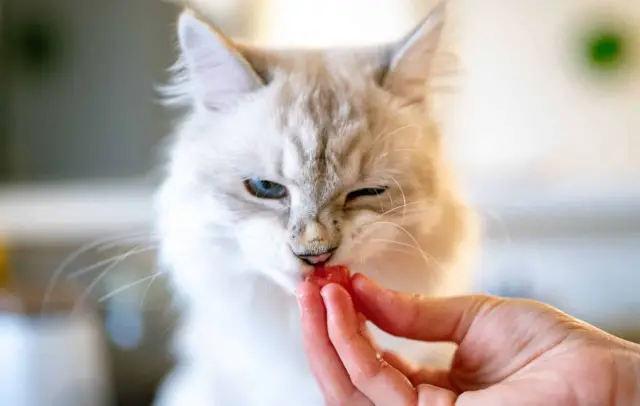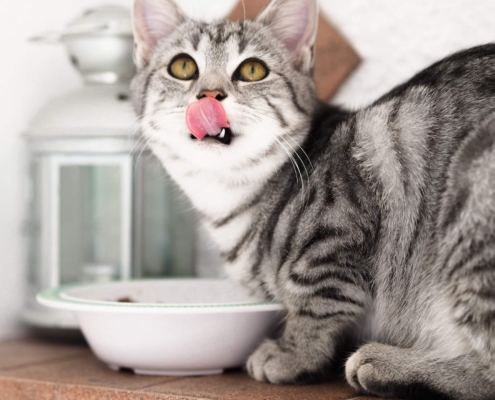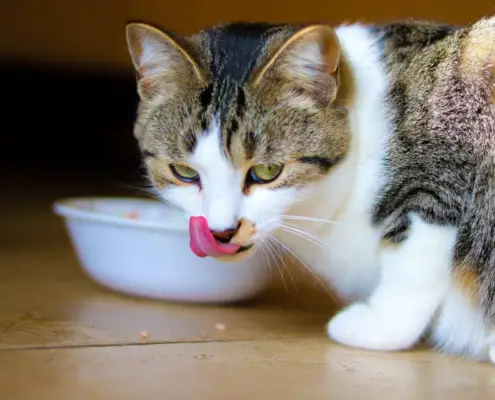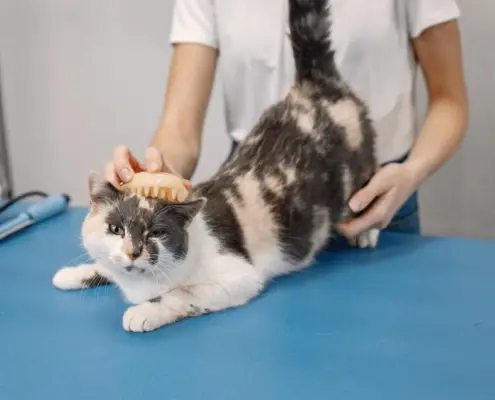
Cats are beloved companions that bring joy and happiness to our lives. As responsible pet owners, it is our duty to ensure their health and well-being. While most of us are aware of the dangers posed by certain foods to our feline friends, such as chocolate and grapes, we often overlook the potential hazards of vegetables. This article aims to shed light on the most dangerous vegetables for cats, helping you keep your furry companion safe and healthy.
Why Certain Vegetables Are Harmful to Cats
Just like humans, cats have unique dietary requirements. While vegetables can provide valuable nutrients and fiber to our own diets, they may not be as beneficial for our feline friends. Cats are obligate carnivores, meaning their bodies are designed to thrive on a diet primarily consisting of meat. Their digestive systems are not equipped to process certain vegetables, leading to potential health issues. Additionally, some vegetables contain compounds that can be toxic to cats. It is crucial to be aware of these dangers and take necessary precautions.
Common Symptoms of Vegetable Poisoning in Cats
Identifying the symptoms of vegetable poisoning in cats is vital in order to provide prompt medical attention. While the specific symptoms may vary depending on the vegetable ingested, there are some common signs to watch out for. These include vomiting, diarrhea, abdominal pain, lethargy, loss of appetite, and changes in urination. If you notice any of these symptoms in your cat after they have consumed vegetables, it is crucial to contact your veterinarian immediately.
The Most Dangerous Vegetables for Cats
Carrots: A Surprising Danger for Feline Friends
Carrots are often regarded as a healthy snack for humans, but they can pose a surprising danger to our feline companions. While small amounts of cooked carrots may be safe for cats, excessive consumption can lead to digestive issues. The high fiber content in carrots can cause stomach upset and diarrhea in cats. Furthermore, the choking hazard presented by raw carrot sticks should not be overlooked. It is important to monitor your cat’s carrot intake and ensure they are given in moderation.
Onions and Garlic: Hidden Dangers in Everyday Meals
Onions and garlic are staples in many households, but they contain compounds that can be highly toxic to cats. These vegetables belong to the Allium family and contain substances that can cause damage to the red blood cells in cats, leading to a condition known as Heinz body anemia. Symptoms of onion and garlic poisoning in cats include weakness, pale gums, increased heart rate, and difficulty breathing. It is crucial to keep all forms of onions and garlic away from your feline friends, including cooked dishes and seasonings.
The Toxic Effects of Tomatoes on Cats
Tomatoes, while a common ingredient in many dishes, can be harmful to cats. The leaves and stems of tomato plants contain a toxic substance called solanine, which can cause gastrointestinal upset in cats. Additionally, the unripe green tomatoes contain higher levels of solanine and can be even more toxic. Symptoms of tomato poisoning in cats include drooling, vomiting, diarrhea, and in severe cases, tremors and seizures. It is best to err on the side of caution and keep tomatoes out of your cat’s reach.
Spinach and Other Leafy Greens: A Threat to Feline Health
Leafy greens, such as spinach and kale, are often praised for their nutritional value in human diets. However, these vegetables can be problematic for cats. They contain high levels of oxalates, which can contribute to the formation of urinary crystals and stones in cats. If ingested in large quantities, spinach and other leafy greens can lead to urinary tract issues and potentially life-threatening blockages. It is advisable to consult with your veterinarian before incorporating these vegetables into your cat’s diet.
How to Prevent Vegetable Poisoning in Cats
Prevention is key when it comes to keeping your cat safe from dangerous vegetables. Here are some essential tips to follow:
- Research before feeding: Always research the safety of a vegetable before offering it to your cat. Consult with your veterinarian or a reliable source to ensure that the vegetable is safe for feline consumption.
- Moderation is key: If you choose to give your cat vegetables, do so in moderation. Small, occasional portions are generally safe, but excessive consumption can lead to digestive issues.
- Secure your kitchen: Keep all vegetables, especially toxic ones like onions and garlic, securely stored and out of your cat’s reach. Be mindful of any vegetable scraps or leftovers that may be accessible to your curious feline.
- Monitor for symptoms: Keep a close eye on your cat for any signs of vegetable poisoning. If you notice any abnormal behavior or symptoms, seek veterinary attention immediately.
Keeping Your Cat Safe from Dangerous Vegetables
As responsible pet owners, it is our duty to prioritize the health and safety of our furry companions. While vegetables can be beneficial for humans, certain ones can pose dangers to cats. By being aware of the most dangerous vegetables for cats and taking necessary precautions, we can ensure that our feline friends lead long, healthy lives. Remember to consult with your veterinarian for personalized advice and recommendations. With proper care and attention, we can keep our cats safe from the hidden dangers of vegetables.
If you enjoyed my article, I would appreciate you sharing it with your network.

Sima Ndlebe
Sima writes for CatBuzz. He is interested in Cats, Health and Fitness, and Entrepreneurship.
Published: 13 October 2023
Related Articles
Disclaimer
The content found on CatBuzz.org is presented on an "as is" basis and is intended for general consumer information and education purposes only. Any utilization of this information is voluntary and solely at the user's own risk.
None of the articles or content should be regarded as, or used in place of, veterinary medical advice, diagnosis, or treatment. The information provided on the website is purely for educational and informational intentions and should not be considered a substitute for professional guidance from a veterinarian or other qualified expert. The articles are designed to inform consumers about veterinary healthcare and medical matters that may impact their cat's daily life. It should be noted that this website and its services do not constitute the practice of any form of veterinary medical advice, diagnosis, or treatment. CatBuzz.org explicitly disclaims any liability for any direct or indirect damages or losses that may arise from the use of or reliance on the information contained within the content.
Consumers must consult a veterinarian, veterinary specialist, or another qualified veterinary healthcare provider when seeking advice regarding their cat's health or medical conditions. It is important not to ignore, avoid, or postpone seeking medical advice from a veterinarian or other qualified veterinary healthcare provider solely based on information obtained from this website. If you believe that your cat may be experiencing a medical issue or condition, it is imperative to promptly contact a qualified veterinary healthcare professional.



